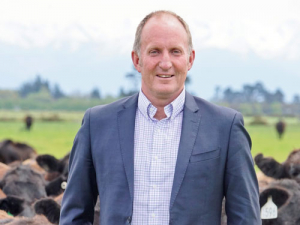OPINION: The Parliamentary Commissioner for the Environment’s (PCE) recent comprehensive report: “Farms, Forests and Fossil Fuels” shows the clear way forward for New Zealand on climate change.
It sets out the science and the steps we must take based on that science to tackle climate change.
B+LNZ – and the whole livestock sector – are committed to reducing biogenic greenhouse gas emissions in line with their warming impact. The PCE’s previous report identified a 10-22% range for methane reduction in order for the sector to achieve the equivalent of net carbon zero. The sheep and beef sector have committed to moving towards carbon neutral at the farm gate by 2050.
The PCE’s latest report identifies the important difference between biogenic and fossil-fuel sourced greenhouse gases (GHGs). Both must be reduced, but fossil-fuel sourced GHGs have a permanent warming effect. We need early, deep and permanent cuts in fossil-fuel sourced gases.
Farmers are committed to owning their own issues and tackling their own impact on the climate. The sheep sector has already shown the way, by reducing emissions intensity and absolute emissions by more 30% since 1990, while maintaining production. Other parts of the livestock sector are also committed to playing their part.
The PCE’s report recommends changes to the NZ Emissions Trading Scheme (ETS), so that fossil-fuel GHGs can no longer be offset by planting trees; but recommends that biogenic GHGs should be able to be offset. This is because there is match between the temporary (but still significant) warming of biogenic emissions and the timescales of native and plantation forestry sequestration.
The Commissioner has recommended a science-based approach – which fits with the principle of each sector being responsible for its own emissions and for tackling them. Different sectors should not be able to off-load the impact of their emissions onto other sectors.
It is essential that policy drives the right kinds of behaviours for fossil-fuel and biogenic greenhouse gases; to do this policy must reflect the differences between those gases and how they can be effectively mitigated.
It is now essential that Ministers considering the shape of the Zero Carbon Bill, and members of the Interim Climate Change Committee and the future Climate Change Commission, take the Parliamentary Commissioner’s findings into account when setting policy.
• Andrew Morrison is chairman of Beef + Lamb New Zealand (B+LNZ)



















